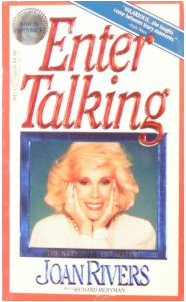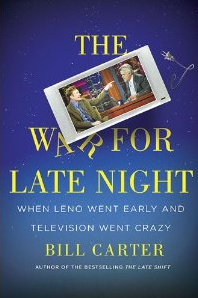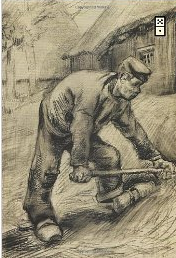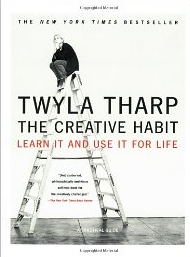I recently finished reading Bossypants by Tina Fey. Here’s the quotes I found most interesting.
 “When choosing sexual partners, remember: Talent is not sexually transmittable.” (Kindle Location 13).
“When choosing sexual partners, remember: Talent is not sexually transmittable.” (Kindle Location 13).
“In most cases being a good boss means hiring talented people and then getting out of their way.” (Kindle Location 32).
“My whole life, people who ask about my scar within one week of knowing me have invariably turned out to be egomaniacs of average intelligence or less. And egomaniacs of average intelligence or less often end up in the field of TV journalism.” (Kindle Locations 64-66).
“So I spent four years attempting to charm the uninterested. (It was probably good practice for my future career on a low-rated TV show.)” (Kindle Location 521).
“A wise friend once told me, “Don’t wear what fashion designers tell you to wear. Wear what they wear.”” (Kindle Location 1080).
“It seemed promising because I’d heard the show was looking to diversify. Only in comedy, by the way, does an obedient white girl from the suburbs count as diversity.” (Kindle Locations 1154-1155).
“The only advice anyone had given me about meeting with Lorne was “Whatever you do, don’t finish his sentences.”” (Kindle Location 1163).
“Things I Learned from Lorne Michaels
1) Producing is about discouraging creativity.
…sometimes Actors have what they call “ideas.” Usually it involves them talking more, or, in the case of more experienced actors, sitting more. When Actors have ideas it’s very important to get to the core reason behind their idea. Is there something you’re asking them to do that’s making them uncomfortable? Are they being asked to bare their midriff or make out with a Dick Cheney look-alike? (For the record, I have asked actors to do both, and they were completely game.) Rather than say, “I’m uncomfortable breast-feeding a grown man who I just met today,” the actor may speak in code and say something like “I don’t think my character would do that.” Or “I’ve hurt my back and I’m not coming out of my dressing room.” You have to remember that actors are human beings. Which is hard sometimes because they look so much better than human beings. Is there someone in the room the actor is trying to impress? This is a big one and should not be overlooked. If a male actor is giving you a hard time about something, you must immediately scan the area for pretty interns…
2) The show doesn’t go on because it’s ready; it goes on because it’s 11:30.
…You have to try your hardest to be at the top of your game and improve every joke you can until the last possible second, and then you have to let it go.
What I learned about bombing as a writer at Saturday Night is that you can’t be too worried about your “permanent record.” Yes, you’re going to write some sketches that you love and are proud of forever—your golden nuggets. But you’re also going to write some real shit nuggets. And unfortunately, sometimes the shit nuggets will make it onto the air. You can’t worry about it. As long as you know the difference, you can go back to panning for gold on Monday.
3) When hiring, mix Harvard Nerds with Chicago Improvisers and stir.
Harvard Is Classical Military Theory, Improv Is Vietnam.
4) Television is a visual medium.
You may want to be diligent and stay up with the writers all night, but if you’re going to be on the show, you can’t.
5) Don’t make any big decisions right after the season ends.
The interesting thing about this piece of advice is that no one ever takes it.
6) Never cut to a closed door.
7) Don’t hire anyone you wouldn’t want to run into in the hallway at three in the morning.
#8 Never tell a crazy person he’s crazy.
Lorne knows that the most exhausting people occasionally turn out the best stuff. How do I explain the presence of crazy people on the staff if we’re following Rule #7? Easily: These crazy people are charming and brilliant and great fun to see at three in the morning. Also, some people arrive at the show sane and the show turns them crazy.” (Kindle Locations 1180-1264).
“Real movie stars do look different from regular people. They are often a little smaller and usually have nicer teeth, shoes, and watches than anyone else in the room.” (Kindle Locations 1291-1292).
“Writers are often assigned to help produce sketches that the performers write.” (Kindle Locations 1297-1298).
“Saturday Night Live runs on a combustion engine of ambition and disappointment.” (Kindle Location 1315).
“If your boss is a jerk, try to find someone above or around your boss who is not a jerk.” (Kindle Location 1407).
“Technology doesn’t move backward. No society has ever de-industrialized.” (Kindle Locations 1560-1561).
“What I learned about Film Acting is that it’s mostly about not standing in other people’s light, and remembering what hand you had your papers in. When you do your “off-camera” lines for someone, you try to put your head real close to the camera. That’s about it. You’re a trained film actor now.” (Kindle Locations 1811-1813).
“Though we are grateful for the affection 30 Rock has received from critics and hipsters, we were actually trying to make a hit show. We weren’t trying to make a low-rated critical darling that snarled in the face of conventionality. We were trying to make Home Improvement and we did it wrong.” (Kindle Locations 1837-1839).
“Even if I sucked, it might be a good rating. A good rating is a good rating, even if people tune in just to be mad about how much it sucked.” (Kindle Locations 1971-1972).
“By the second week, I realized what made this experience so fun and different. For the first time ever, I was performing in front of an audience that wanted to see me. I had spent so many years handing out fliers, begging people to check out my improv team. I was so used to trying to win the audience over or just get permission to be there that a willing audience was an incredible luxury. It was like having a weight lifted off you. I thought, “This must be what it’s like for Darrell when he plays Bill Clinton.” Or for Tracy Morgan when he does anything. People are just happy to see them.” (Kindle Locations 2067-2071).
“Politics and prostitution have to be the only jobs where inexperience is considered a virtue. In what other profession would you brag about not knowing stuff? “I’m not one of those fancy Harvard heart surgeons. I’m just an unlicensed plumber with a dream and I’d like to cut your chest open.” The crowd cheers.” (Kindle Locations 2079-2081).
“Some weeks you got to produce a pure little comedy piece that was dear to your heart and had a great host like Alec Baldwin or Julia Louis-Dreyfus in it. Some weeks you had to sit and take notes from the smallest Hanson brother about what jokes he didn’t care for.” (Kindle Locations 2152-2153).
“When people say, “You really, really must ” do something, it means you don’t really have to. No one ever says, “You really, really must deliver the baby during labor.” When it’s true, it doesn’t need to be said.” (Kindle Locations 2298-2299).
If you liked the quotes, please buy the book here.





